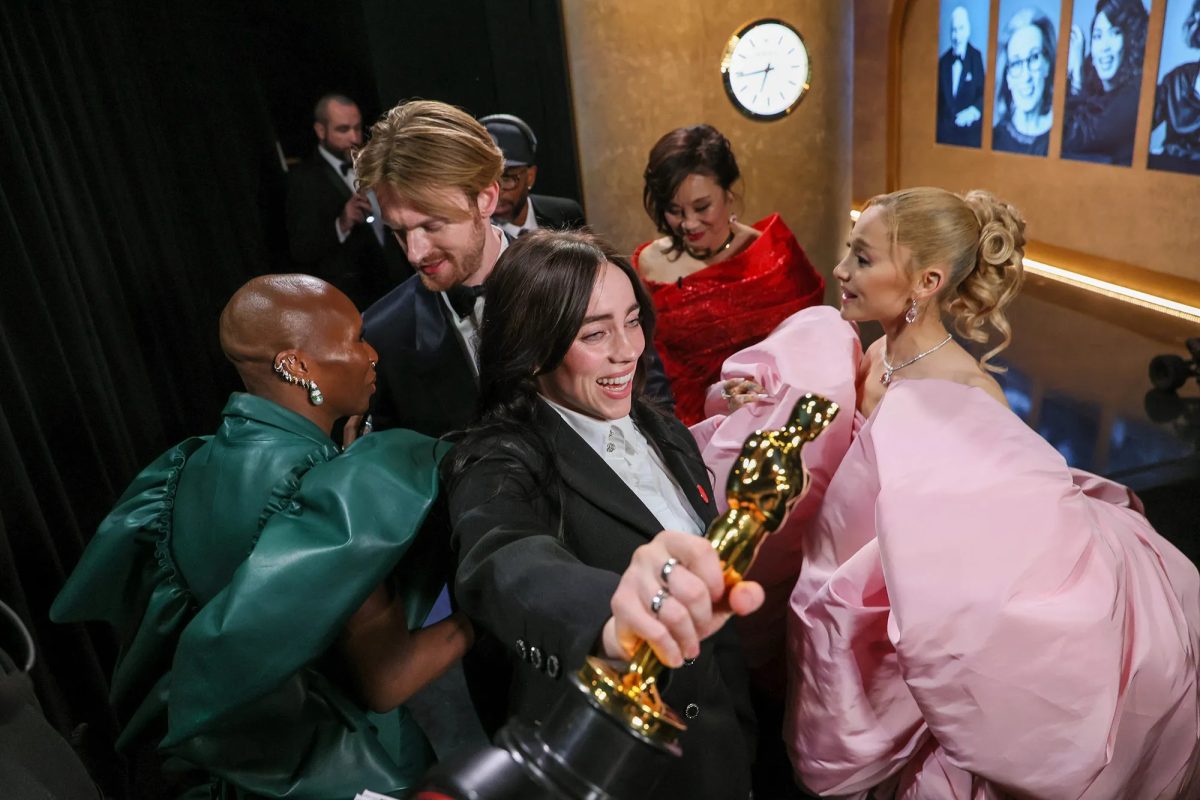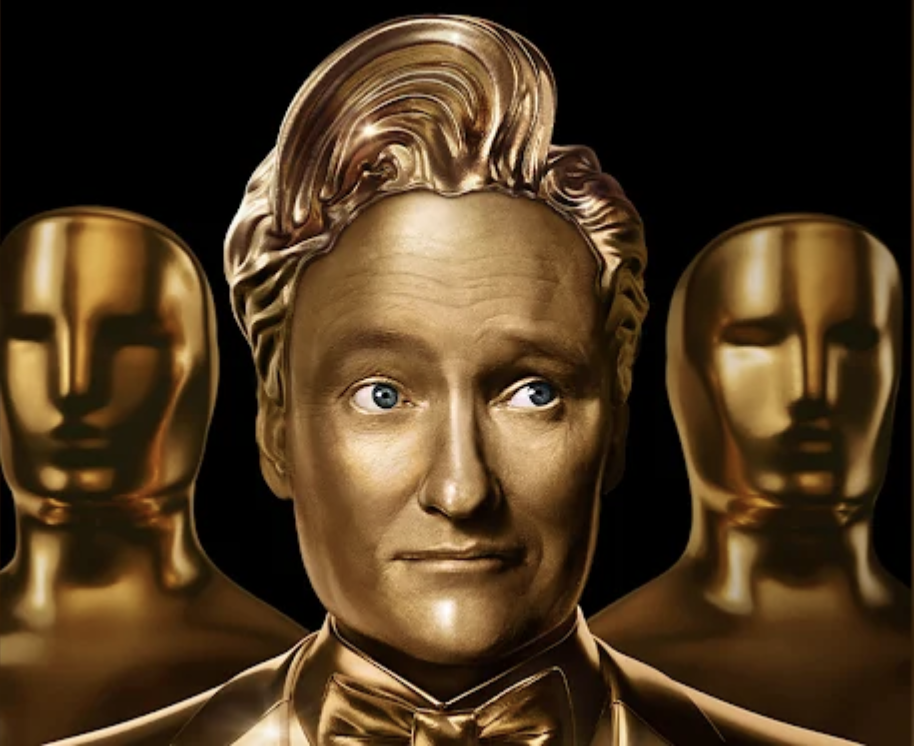One of my resolutions this year was to start watching more movies. I am someone who likes to be up to date on popular culture, but I realized that I really had no idea about the current state of film. I’d seen Barbie, because of course I had — it was the event of the summer. However, out of all of the films nominated for Best Picture at the Oscars this year, that was it. So, about a week ago, in one of my most elaborate schemes to procrastinate homework, I decided to try and watch as many Best Picture nominees as I could. Due to some time constraints and inability to stream certain films, I was able to watch five more films so that I’ve seen a total of six out of the 10 Best Picture nominees. Thus, here I present my thoughts on who won, who deserved to win, and who didn’t. As always, please know that this piece is solely based on my personal opinions — I don’t claim to know everything there is to know about these films or film in general.
The films I ended up seeing were American Fiction, Barbie, The Holdovers, Oppenheimer, Past Lives, and Poor Things. I intended to include Killers of the Flower Moon in this list, but I couldn’t find it streaming for less than $19.99, and to be honest, it looked like a good movie but not that good. I also want to be clear on one thing: I was not planning on watching Oppenheimer. I knew I wouldn’t have time for more than about five or six films, and I had already been planning on watching Anatomy of a Fall or The Zone of Interest. I only watched Oppenheimer because I had learned that it actually won Best Picture as well as a number of other awards. I was frustrated because it was a movie that I had no interest in, but I couldn’t really write an article about the Oscars without seeing it.
Thus, the question I’m sure everyone is asking: do I think Oppenheimer deserved all of the awards it received? I somewhat agree with a few certain wins — I don’t mind that Cillian Murphy won Best Actor in a Leading Role — but I definitely don’t think that it deserved Best Picture. It was a fine movie, and I actually liked it more than I expected to. Murphy did capture a nuanced character well, and for the most part, the storyline was engaging. That said, the film was way too long. There is really no reason it had to be three hours — there were so many scenes that could have been cut out and areas where I felt that it could have been compressed. This may not seem like that big of a deal, but when I watch a movie, it’s because I want to spend two or so hours being enchanted by a story, not three hours being somewhat interested.
I also have some problems with the premise of the film. I know that this is a pretty debatable historical take: I know that some people think that the atomic bomb was the only way to end World War II, but I believe that there should have been a way to end the war without decimating a population of innocent civilians. I am not sure that making Oppenheimer likable or sympathetic as a character is the best move, especially not at a time when there is an active genocide happening.
In all seriousness, however, the way the film handled the ethical dilemma of the creation of the bomb felt like an afterthought. I thought that the best scene of the film was when Oppenheimer was staring at the people cheering for him and suddenly imagined a woman’s skin melting off. This was the only scene of the movie that really depicted just how horrible and damaging the bomb was. He had some more moments of guilt as the plot unfolded, but the point of the movie was more about exposing Lewis Strauss rather than the harm the bomb caused and Oppenheimer’s remorse over creating it. The glorification of Oppenheimer’s intellect didn’t sit right with me when he used it to create something that I feel is immoral.
That, and the movie almost completely ignored the harm that the testing in Los Alamos, NM caused to the Indigenous people of that area. There were exactly two mentions of Indigenous people: first, when Oppenheimer claims that the testing site is perfect because the only people who come there are “the local Indians” who visited the space for burial rituals; then towards the end, when the President asked what they should do with the land, Oppenheimer said they should give it back to the Native peoples, as if this was a worthy consolation for the fact that they’d destroyed a sacred space as well as set off a bomb that had lasting health effects. Oppenheimer as a movie was white-centric and insensitive.
So, what do I think should have won Best Picture? I don’t have a definitive answer, because there are a couple films I wouldn’t have minded taking the win.
I really liked American Fiction, though I wonder if that is only because I am a writer and thus its commentary on the publishing industry felt particularly poignant to me. Even still, it made a noteworthy point about systemic racism and the inauthentic nature of the push for more “diversity.”
I also loved The Holdovers — it is such a sweet film — but it does kind of feel like a modern remake of Dead Poets Society, and I’m not sure it deserved Best Picture. That said, I am truly so happy that Da’Vine Joy Randolph won Best Actress in a Supporting Role for that picture — her performance was impactful and conveyed such raw emotion.
Past Lives was a fine film. It felt a little slow to me, though, and I don’t feel the need to make a case that it should have won.
The two films that I think should have been the top contenders for winning are Barbie and Poor Things. I know that Barbie has its flaws and I am not going to say it was a perfect movie. But it took the world by storm, and while I know a lot of Oberlin students (myself included) who felt its discussion of feminism was rudimentary, it did pose these concepts in a very palatable way. I would remind those who criticize Barbie that a lot of us here at Oberlin are often more educated and familiar with these sorts of concepts than many other Americans necessarily are. Barbie was also geared toward all ages, which could contribute to the seemingly superficial discussion of feminism. The messages in this film, while introductory, are needed for young girls especially. Not to mention, its cinematography and acting were so fun and well-done. I honestly think it could have, and maybe should have, won Best Picture.
I will admit, Poor Things isn’t for everyone. It is intense. Perhaps I understand why it didn’t win Best Picture, but, that said, I’m going to make a case for it anyway. Poor Things is captivating. I was on the edge of my seat the whole time. I completely understand why Emma Stone won Best Actress in a Leading Role; her performance was stunning. I know that a lot of people are upset that Lily Gladstone didn’t win for Killers of the Flower Moon. I don’t doubt that she may have been deserving of the award as well, and I wish I had seen the movie so I could offer a more complete opinion. But just based on seeing Stone in Poor Things, I thought she was fantastic and the award was appropriately given. Poor Things for me is a five-star movie all around: stellar cinematography, brilliant acting, a nuanced, gripping storyline, darkly funny moments interspersed, a relevant societal commentary, and overall, just a very thought-provoking film. For these reasons, I think it could have won Best Picture.
Though I appreciated certain decisions, overall I was disappointed with the outcome of this year’s Oscars. I think for the most part, some incredible films were disregarded, and Oppenheimer, a decent film, was awarded too highly.














